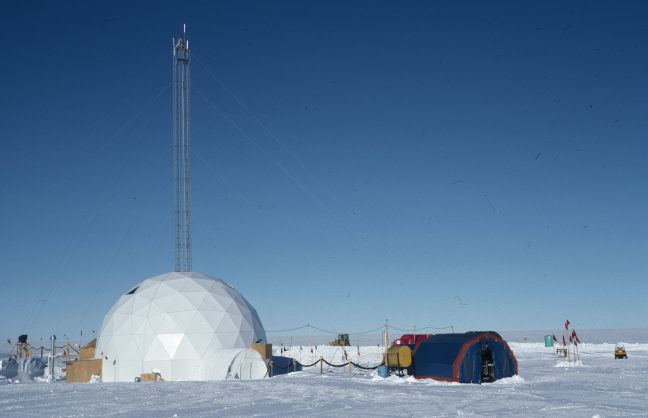The Earth’s oxygen content is slowly declining and scientists aren’t sure why.

Researchers out of Princeton University say that atmospheric oxygen has dropped 0.7 per cent over 800,000 years.
But they also say the decline has sped up in the past century (a further 0.1 per cent) thanks to the use of fossil fuels.
READ MORE: Greenland losing 40 trillion pounds more ice a year than previously believed
“The Earth can take care of extra carbon dioxide when it has hundreds of thousands or millions of years to get its act together,” co-author John Higgins said in a statement.
“The Earth has these long processes that humankind has short-circuited.”
But overall, the report doesn’t offer a clear reason on why levels are declining. What’s more, the carbon dioxide levels don’t appear to be affecting the oxygen levels, which scientists found surprising.
There are two possible reasons, lead author Daniel Stolpher told Live Science.
First, rising erosion rates could have exposed more pyrite and organic carbon like algae, which both react with oxygen.
Second, a cooling ocean – “as it has done over the past 15 million years, before fossil fuel burning,” Stophler explains – stores more oxygen which allows living organisms to consume O2.
Figuring out exactly why could have far reaching effects; it could help scientists figure out how a planet becomes habitable, reports Gizmodo.
READ MORE: What the future of renewable energy will cost Canadians
“This record represents an important benchmark for the study of the history of atmospheric oxygen,” Higgins said. “Understanding the history of oxygen in Earth’s atmosphere is intimately connected to understanding the evolution of complex life. It’s one of these big, fundamental ongoing questions in Earth science.”
To figure it out, researchers went to the top and the bottom of the world: Greenland and Antarctica.
The ice-covered land masses held trapped air pockets which represented snapshots of our atmosphere throughout history.
The study was published in the journal Science on Sept. 22.




Comments